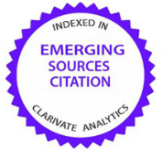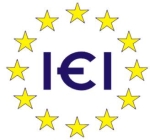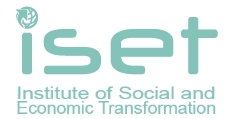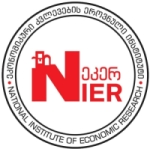Assessment of Compliance to the Market Environment of the Institutional Economic Mechanism of Maritime Transport Operation
Abstract
Introduction. When analyzing the dynamics of the current situation, it is important to consider the institutional cycle, which is clearly manifested in the long-term economic development of maritime transport and international trade. Owing to the institutional nature of this cycle, an institutional-economic mechanism that is adequate for one of its phases may be inadequate for another historical phase. Therefore, for an objective assessment of the compliance of the institutional-economic mechanism of maritime transport in general economic situations, full consideration of the specific historical stage of the institutional cycle is of fundamental importance.
Aim and tasks. This study aims to combine the neo-institutional approach with a fundamental analysis of the processes of globalization and localization to develop a scientific basis for an objective assessment of the compliance of the institutional-economic mechanism of sea transport with the economic situation.
Results. The methodology of the transactional approach was used to examine informational influence on the economic choice of subjects in the maritime transportation market through an organized search for alternative options for market operations. The application of macro-marketing in the field of maritime transport made it possible to determine the possibility of reducing the level of information costs of economic entities in this field by 35–40% and the overall level of transaction costs by 2-3% and significantly increasing the profits of companies.
Conclusions. The assessment of the compliance of the institutional and economic mechanism of sea transport in general economic situations is related to both the neo-institutional version of the transactional analysis and the theory and practice of macro-marketing, in accordance with the new historical conditions associated with the crisis of globalization and the tendency to localize production. Application of the transactional approach to the informational influence on the economic choice of subjects of the maritime transport market testified that not so much market prices for transport services in themselves can become a tool for indirect control through prices, but information about them as a basis for optimizing the functioning of the entire economic system of maritime transport due to the relative reduction of uncertainty.
Keywords:
maritime transport, institutional cycle, economic mechanism, transactional approach, macro-marketing.References
Breskin, I. (2020). The Business of Shipping. Cornell Maritime Press.
Eshchenko, P. (2019). Information economy: A chance to build a new model of social development or an illusion of a chance? Economy of Ukraine, 2, 3–21. https://doi.org/10.15407/economyukr.2019.02.003
Faux, J. (2017). U.S. Trade Policy – Time To Start Over. Economy of Ukraine, 5-6, 4-15.
Filipishyna, L., Hryshyna, L., Zhuvahina, I., Ponedilchuk, T., & Paska, I. (2020). Model scenarios of sustainable development strategy in the formulation of mechanisms for enterprise support resources. Intellectual Economics, 14(1), 31-44.
Goodfriend, M., & King, R. G. (2005). The incredible Volcker disinflation. Journal of Monetary Economics, 52(5), 981–1015. https://doi.org/10.1016/j.jmoneco.2005.07.001
Grammenos, C. (2020). The Handbook of Maritime Economics and Business. Routledge.
Holmes, K. (2017). Rebound Getting America Back to Great. Rowman & Litlefield.
Huang, Q. (2018). China's Industrialization Process. Springer Singapore.
IMO. (2023). EEXI and CII - ship carbon intensity and rating system. https://www.imo.org
Kanth, R. (2017). Against Economics. Rethinking Political Economy. Aldershot :Ashgate.
Karakitsos, E. (2021). Maritime Economics: A Macroeconomic Approach. Palgrave Macmillan.
Kerstin, S., & Roy S. (2012) Institutional Theory in Organization Studies. London: SAGE.
Keynes, J.M. (2004). A Treatise on Probability. Dover.
Keynes, J.M. (2018). The General Theory of Employment, Interest and Money. Palgrave MacMillan.
Knight, F.H. (2006). Risk, Uncertainty and Profit. Dover Publications Inc.
Koval, V., Kaminskyi, O., Brednyova, V., & Kosharska, L. (2022). Digital Ecosystem Model of Labour Resources Management in Economic Militarism. Revista Gestion de las Personas y Tecnologia, 15(45), 21. https://doi.org/10.35588/gpt.v14i45.5902
Linder, M., & Sensat, Jr.J. (2018). .Anti-Samuelson. Basic Ideological Concepts. Crises and Keynesianism. The World Market, Urizen Books.
Lucas, R.E. (1981). Methods and Problems in Business Cycle Theory. In R. Lucas, Studies in Business Cycle Theory. Cambridge, MA: The M.I.T. Press, 271– 296.
Lucas, R.E. (1987). Models of Business Cycle. Oxford: Basil Blackwell.
Ma, S. (2022). Economics of Maritime Business. Routledge Maritime Masters.
McKenna, E. & Diane, Z.I. (2007). Neoclassical Synthesis (Bastard Keynesianism). Cheltenham: Routledge.
Naughton, B. (2019). The Chinese Economy: Transitions and Growth. IMT.
Powell, W. & Paul, J. (2012). The New Institutionalism in Organizational Analysis. University of Chicago Press.
Rogoff, K., & Yang, Y. (2021). Has china’s housing production peaked? China & World Economy, 29(1), 1–31. https://doi.org/10.1111/cwe.12360
Rojecki, A. (2016). Trumpism and the American politics of insecurity. The Washington Quarterly, 39(4), 65–81. https://doi.org/10.1080/0163660x.2016.1262124
Royston, G. & Oliver, C. (2008). The SAGE Handbook of Organizational Institutionalism. SAGE.
Samuelson, P. A. (1971). Understanding the Marxian notion of exploitation: a summary of the so-called transformation problem between Marxian values and competitive prices. Journal of Economic Literature, 9(2), 399-431.
Stopford, M. (2019). Maritime Economics. (3th. ed.). Routledge.
Talley, W. (2017). Port Economics. Routledge Maritime Masters.
UNCTAD. (2022a). Trade and Development Report 2022. https://unctad.org/tdr2022
UNCTAD. (2022b). Review of Maritime Transport. https://unctad.org/publication/review-maritime-transport-2022
Zucker, G. (2018). Institutional Patterns and Organizations: Culture and Environment. MA: Ballinger.
Zveryakov, M. (2022). Formation of the economic development model in new historical realities. Economy of Ukraine, 8, 3–19. https://doi.org/10.15407/economyukr.2022.08.003
If the article is accepted for publication in the journal «Economics. Ecology. Socium» the author must sign an agreementon transfer of copyright. The agreement is sent to the postal (original) or e-mail address (scanned copy) of the journal editions.





















